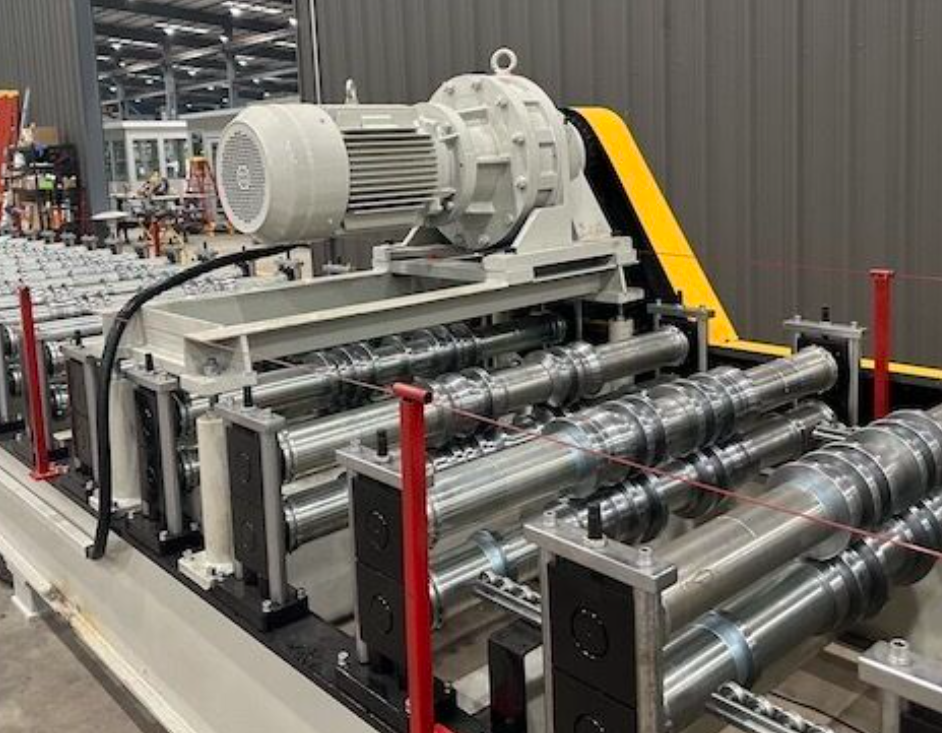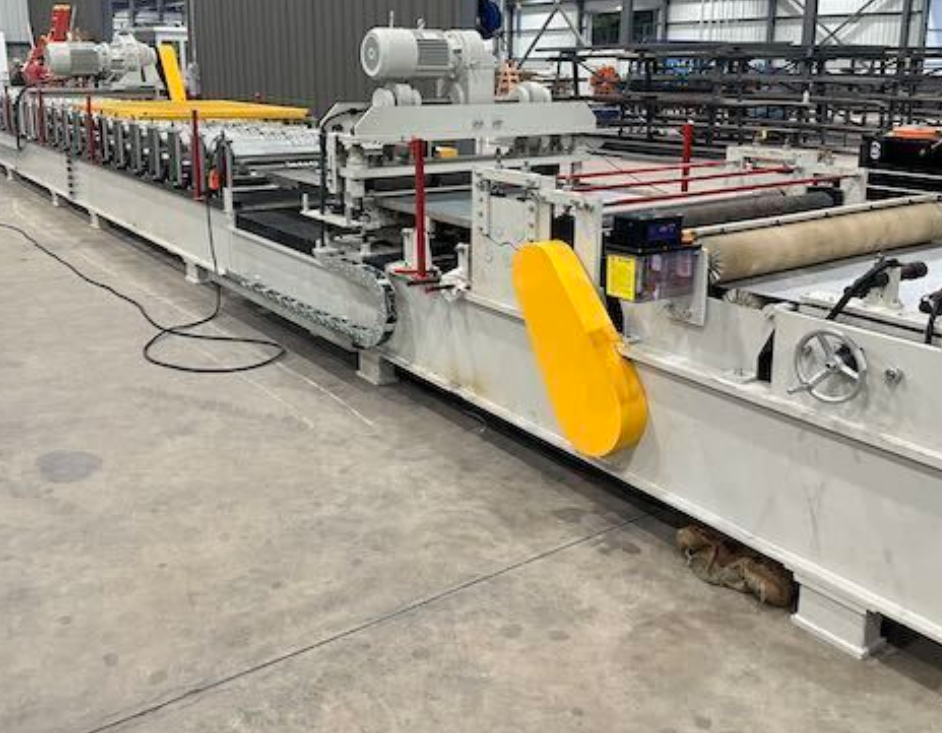To express an interest in this machine please submit the form below.

Not Sure What Machine You Need?
Select Your Profile, We'll Match It
Choose your desired profile drawing, and let Machine Matcher connect you with the best roll forming machine tailored to your needs.
Browse Profiles



Floor deck roll forming machines are essential for manufacturing floor decking panels, which provide strength and stability in construction, particularly for multi-level buildings, bridges, and other heavy-duty infrastructure. These machines streamline the production process, ensuring consistent quality and structural integrity in deck panels. In Texas, where the construction industry is robust and demand for high-quality materials is growing, a floor deck roll forming machine can provide a significant advantage to manufacturers and builders alike.
A floor deck roll forming machine is designed to produce durable floor decking sheets with precise profiles. These sheets are often used in concrete reinforcement applications, serving as a foundational element in modern construction. This machine processes coiled steel into customizable deck profiles, providing consistent quality and structural stability. This process involves uncoiling, leveling, roll forming, and cutting, enabling efficient production of long-length decking panels.
1. Roller Materials
2. Machine Speed
3. Frame Size
4. Servo Motors and Hydraulic Cutting Systems
5. Profile Sizes
6. PLC Control System
7. Safety Guards and Enclosures
In Texas, the construction industry is thriving with ongoing developments in commercial and residential buildings, industrial facilities, and infrastructure projects. The demand for durable and reliable floor decking systems is high, making floor deck roll forming machines an excellent investment for Texas-based manufacturers. By adopting these machines, companies can meet the local demand for high-strength floor decking materials, reduce dependency on imports, and maintain control over quality standards.
Q: What materials are compatible with a floor deck roll forming machine?
A: Floor deck roll forming machines are compatible with various grades of steel, including galvanized steel, high-strength low-alloy (HSLA) steel, and other steel alloys that offer enhanced load-bearing properties. The material choice typically depends on the structural requirements of the end product.
Q: Can a floor deck roll forming machine handle custom profiles?
A: Yes, most floor deck roll forming machines can be customized to produce a range of profile sizes and depths. Adjustable roller settings and a programmable PLC system allow for flexibility in profile designs.
Q: What is the typical thickness range for floor deck panels?
A: The typical thickness range for floor decking panels is between 1.0 mm and 1.5 mm, though some machines may accommodate thicker materials depending on the project requirements.
Q: How can I ensure compliance with Texas construction standards using a floor deck roll forming machine?
A: By utilizing a floor deck roll forming machine, manufacturers in Texas can ensure consistent quality and dimensional accuracy, which are crucial for meeting local building codes. Regular maintenance and calibration of the machine also contribute to compliance with structural standards.
Q: What maintenance is required for a floor deck roll forming machine?
A: Routine maintenance includes lubrication of moving parts, checking and replacing worn rollers, and ensuring the hydraulic and cutting systems are functioning correctly. Regular inspections also help prevent production delays and maintain product quality.
Q: How does a floor deck roll forming machine contribute to construction projects in Texas?
A: This machine enables the production of high-quality floor decking, essential for structural integrity in multi-story buildings and large-scale projects common in Texas. The machine’s efficiency and ability to customize deck profiles make it ideal for the diverse construction needs of the Texas market.
By investing in a floor deck roll forming machine, Texas manufacturers and construction companies can enjoy the advantages of high-speed production, customizable profiles, and compliance with quality standards, making it a strategic choice for the state’s growing infrastructure needs.
Copyright 2026 © Machine Matcher.